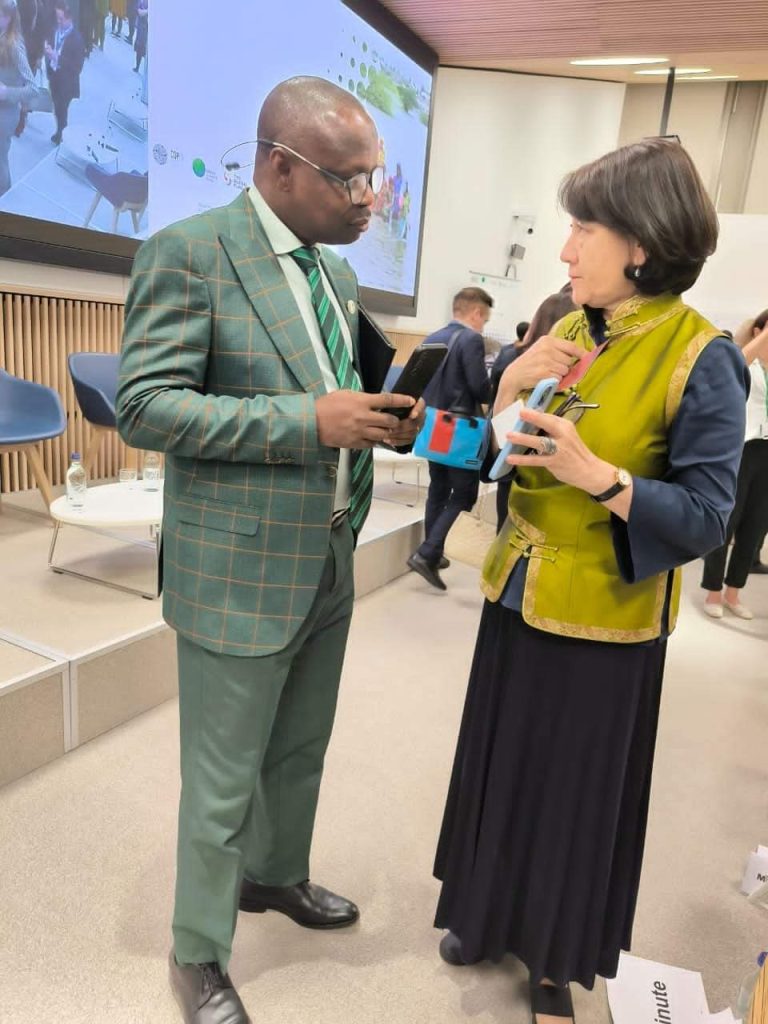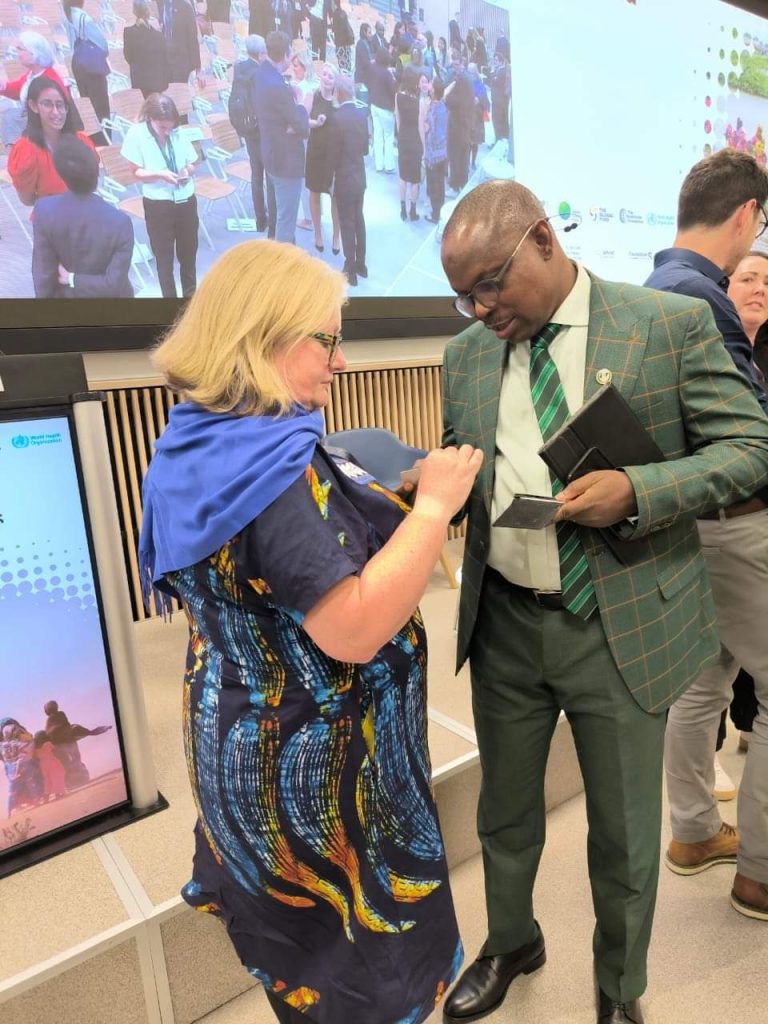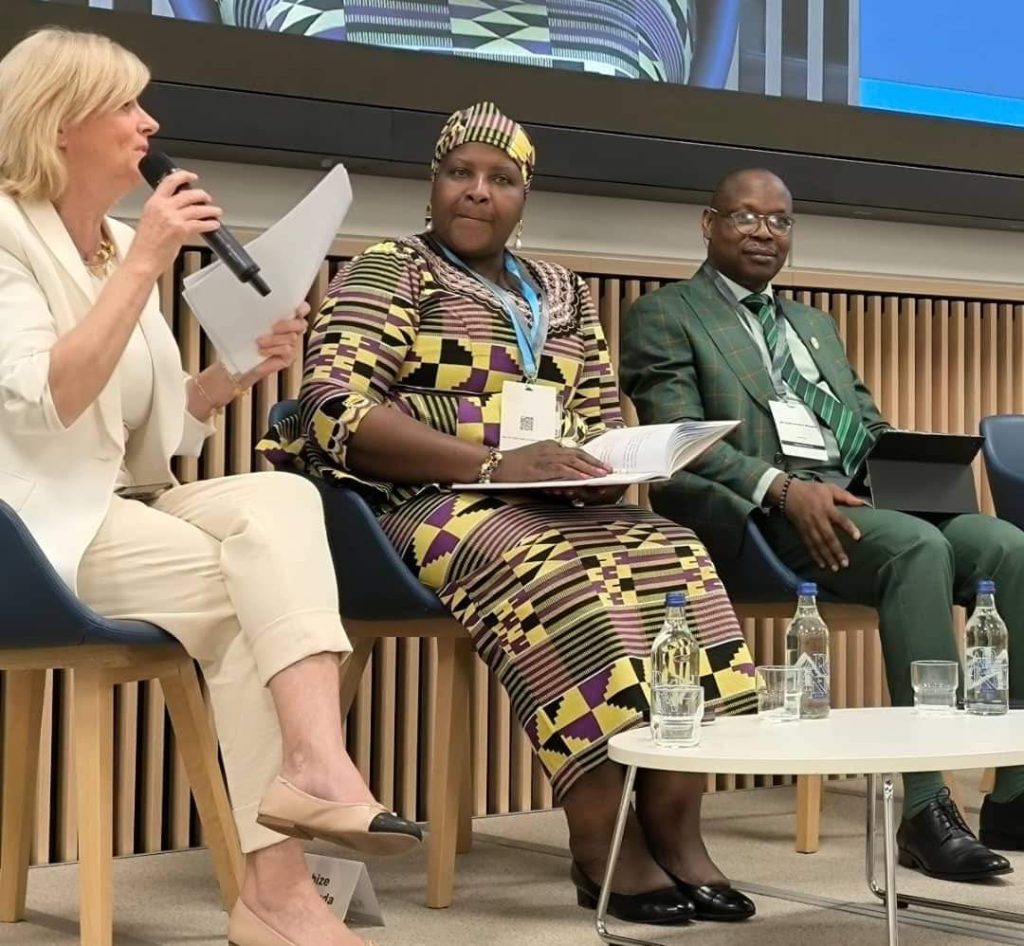77th World Health Assembly: Salako Advocates for Innovative Solution, Says Climate Change Is A Malaria Burden Amplifier, Illness Potentiator
Nigeria’s Minister of State for Environment, Dr. Iziaq Adekunle Salako, has called on stakeholders to develop innovative solutions to mitigate the impacts of climate change because the resurgence of malaria was caused by them. He made this call on Thursday, May 30, 2024, at the 77th World Health Assembly which is being held at the Global Health Campus Chemin Du Prommier 40121B, Grand-Sacone, Switzerland. He said the world is confronted with the pressing challenge of the intersection of climate change and health, particularly the resurgence of malaria in sub-Saharan Africa.
“Higher temperatures, increased rainfall and humidity are increasing the geographical range of mosquitoes and prolonging the annual time frame of malaria transmission in sub-Saharan Africa while extended hot and dry season can cause bodies of water to dry up into stagnant water creating a breeding ground for mosquitoes. Flood incidences can also lead to considerable uptick of malaria cases due to stagnant bodies of water left behind after the flood while damage to infrastructure may make healthcare inaccessible to people especially vulnerables like children, women and the elderly. The loss of livelihoods, displacement and poor nutrition from climate disasters also exposes the people to malnutrition and higher risk of severe malaria”, Salako noted

He said climate change is not just an environmental issue, but also a profound public health threat which he called “a malaria burden amplifier and illness potentiator”.
“Climate influences malaria burden directly by affecting transmission dynamics and indirectly through the many socio-economic factors that underpin malaria vulnerability. It is therefore imperative that malaria eradication strategies are climate-proof by understanding the link between climate and malaria transmission, its morbidity and mortality rates.”
He said that Nigeria, like many countries in Africa is experiencing the adverse impacts of climate change on health disproportionately the government embarked on many initiates with technical supports from the World Health Organisation (WHO) as well as other partners to address the situation .

“Our communities are witnessing a resurgence of malaria, straining our health systems, jeopardizing our progress towards malaria eradication and reducing productivity and economic wellbeing of our people. Studies in Portharcout, Kano, Jos major cities in Nigeria and other places have clearly demonstrated that the prevalence of malaria is significantly dependent on the increase in rainfall and temperature. It is therefore clear that we need a comprehensive and integrated approach to tackle these challenges.
“In response to the malaria situation and to guide implementation, the National Malaria Elimination Program (NMEP) initiated the High Burden to High Impact (HBHI) approach with technical support from the WHO and other partners to address the malaria situation in Nigeria. The current 2021–2025 National Malaria Strategic Plan (NMSP) is based on the vision of achieving a malaria-free Nigeria, aiming to reduce malaria morbidity to less than 10 percent parasite prevalence and mortality attributable to malaria to less than 50 deaths per 1,000 by 2025.
“The 2021 revised Nigeria’s Nationally Determined Contribution (NDC) includes health-related targets such as Health Impact Awareness, Strengthening Health Systems, Vulnerability Assessments, Health Sector Adaptation Measures, and Cross-Sector Collaboration. These efforts are crucial in ensuring our health systems are resilient and capable of responding to the dual threats of climate change and malaria”, he added.

He mentioned that the implementation of some policies like national clean cook policy, net zero, green transport, energy transition and sustainable food systems play crucial roles in combating malaria and addressing climate-related health challenges. He added that reducing environmental degradation and green house gas emission, managing waste circularly, clearing drains and improving general environmental sanitation can create healthier environment, thereby diminishing mosquito breeding sites and the spread of malaria.
He said mobilizing domestic funds as well as the adoption of climate smart agriculture with its potential to increase food security, reduces malnutrition and immuno-deficiency with the potential to reduce the incidence of severe and complicated malaria.
“Mobilizing domestic funding is clearly an important strategy that we must focus on to be able to scale up actions to address the resurgence of malaria occasioned by climate change. In Nigeria, the introduction of Sovereign Green Fund is helping to mobilize fund for climate actions which have the capacity to help address the challenges of malaria. The Green Bond which is issued by the Federal Ministry of Environment helps us to sit down with national health authorities and influence projects that addresses the climate health nexus
“It is clear that climate disasters will continue to occur affecting our continent and the vulnerables amongst us disproportionately and impacting our ability to respond to malaria and other diseases of poverty. The health and future of our communities depend on our actions today. Let us work together with renewed vigour and determination to build resilient health systems and create a safer, healthier world for all through regional and global actions”, the Minster concluded.




